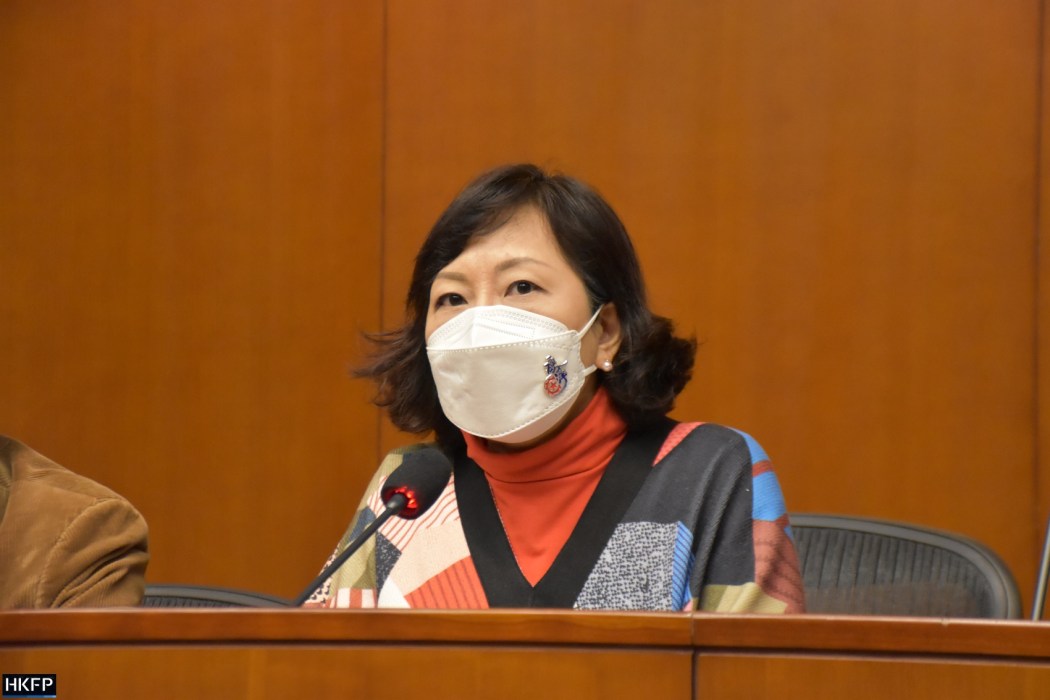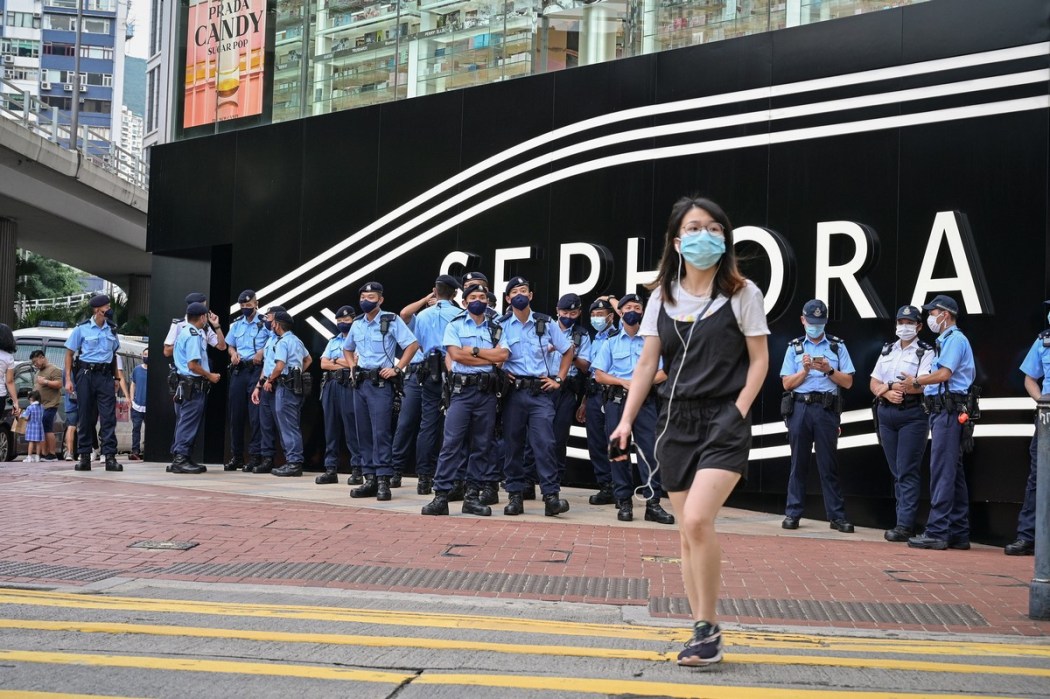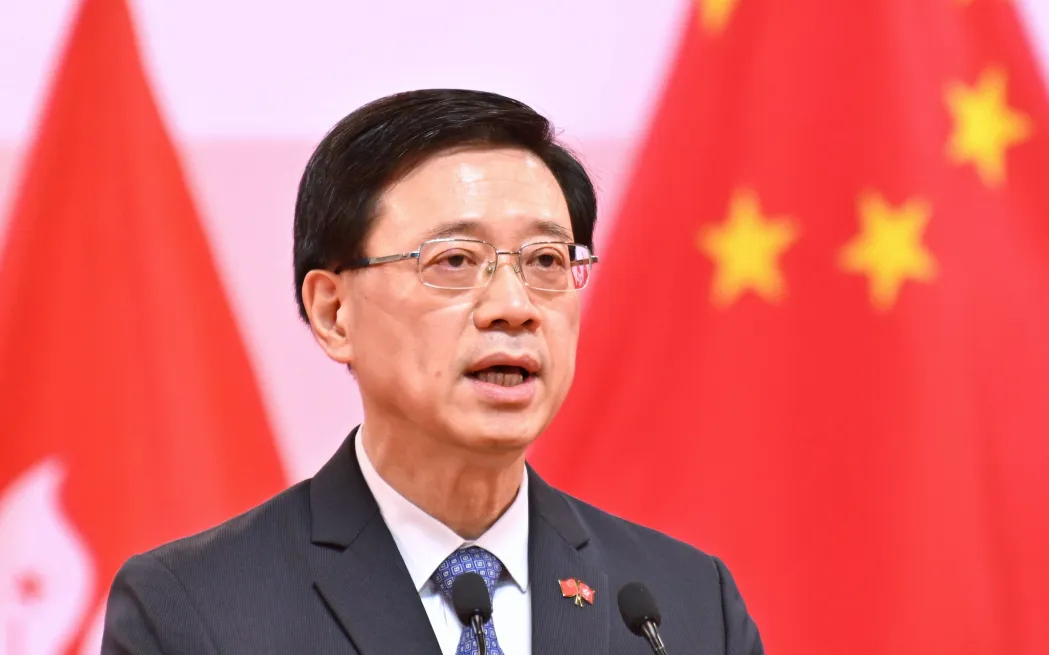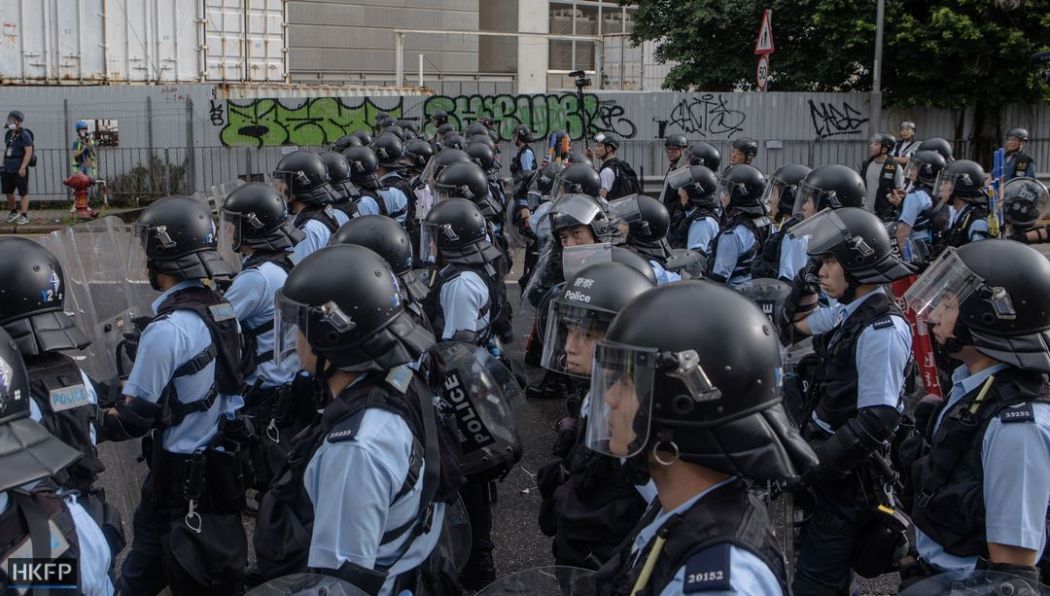What’s wrong with Hong Kong becoming a police state? According to anti-democracy legislator Alice Mak, not much. Before realising that honesty is not the best policy in these matters she said, “If it’s a police state, why not? I don’t think there’s any problem with a police state. When we say a police state, I will view the other side, that is the emphasis on security.”

It appears that soon after blurting out what she imagined to be non-controversial, one of her bosses nobbled her with a gentle reminder that blunt truths should never be spoken out loud, so she made a somewhat unconvincing attempt to pretend that her remarks were of the tongue-in-cheek variety.
However, the question of whether a police state is emerging remains and deserves to be answered head-on because a state in which the police call the shots and where the security apparatus, both covert and overt, is in the riding seat, is a state that is congenitally frightened of its own people and has abandoned cooperation and persuasion in favour of crackdowns and heavy punishment as the main instruments of control.

Hong Kong has always been one of the most heavily policed societies on the planet. Now it is being supplemented by a new national security office, answerable only to Beijing and operating outside local laws as its work is not subject to judicial review. Much speculation surrounds the size of the force operated by this office. Some sources estimate that it will involve as many as 4,000 officers, others say that it is impossible to know how this will work because even the details of its new HK$8 billion budget have not been spelled out as this allocation was rushed through the new rubber LegCo without question.
Moreover there is a very distinct possibility that members of the Mainland’s state security apparatus are both directing and supplementing the work of local officers.

With so many people employed in the security sphere, work has to be found for them to do and, at this stage it largely consists of chopping the heads of the democratic movement, mainly by incarcerating the leaders and creating a sufficient level of intimidation to shut down organisations associated with the opposition.
It will, of course, not stop there, the long arm of the white terror will extend its reach. Even now this can be seen on a minor level as police officers, seemingly in every location, have stepped up searches and shaking down of people on grounds of youth and, even worse, on grounds of wearing black clothing. More sinister is the hotline installed to get citizens to snitch on each other and the stepped up surveillance by electronic means and by good old fashioned interception of communications. Many of those arrested are taken aback by the amount of information gathered in this manner.
The elevation of police officers to the most senior positions in government confirms that Beijing not only wants to see a highly active security apparatus operating in Hong Kong but also instinctively trusts those with a security background to oversee the work of government.

They bring an attitude of mind to the affairs of state. Policemen are used to dealing with citizens as suspects, they often regard themselves as a beleaguered group holding the line against chaos that they believe would ensue were tight controls to be lifted. And, because especially in Hong Kong, they live together, largely socialise together and remain in the force for their entire working lives, they have an attitude of apartness from the rest of society, making them suspicious and cautious in their dealings with the rest of the population.
Blue lives at the top
Layered on top of this evolution of a system where the police are placed in the first ranks of government is a complex mass of senior appointments of trustees who have been chosen by the Chief Executive (although almost certainly not without approval and maybe instigation from the bosses in Beijing) who form a new layer of control over the judiciary, the education system, the media and so on. In the good old Communist days people occupying posts of this kind were frankly described as being commissars.
The two-layer form of control is a hallmark of all authoritarian systems. The political stratum is always in the driving seat, directing the work and controlling the operations of those below. On the Mainland there is no ambiguity about how this works as Party officials strut around in companies, universities and indeed in all places where society operates on a collective basis. Most of the time they do not need to lift a finger because those under their command know what to do, and, more importantly, what not to do.

The fact that a system of this kind is also highly vulnerable to corruption is a worry but regarded as collateral damage in dictatorships because those at the top are confident that they can rein in corrupt practices. The massive anti-corruption purges witnessed during the Xi era provide testimony to this determination, while confirming the extent to which these practices are embedded in the system.
In Hong Kong the political command structure is still in its infancy, However in a remarkably short period of time it is having a profound impact. A good example have been the purges and introduction of strict censorship at Radio Television Hong Kong, an institution much hated by the Quislings for its refusal to become a government mouthpiece.
Now, especially on the television side of the operation, every single programme is censored before work can even begin and then again once a show has been completed. Prominent programme makers have been summarily fired or forced into resignation. New ‘loyal’ teams have been drafted in to take their place. The Commissars who are running the station are remarkably ignorant about how broadcasting works but entirely familiar with the political imperative of keeping RTHK under tight control.

Meanwhile the claim is being made that with the purging of the legislature and tighter controls over civil society, the administration is freed up to pay closer attention to the bread-and-butter issues which effect citizen’s daily lives.
The reality is precisely the opposite because a government freed from the shackles of accountability – and run by people who always put their careerism before the interests of the public – cares little for the welfare of citizens, particularly the less privileged.
Whether all this means that Hong Kong has become a police state in the purist sense of the word is open to debate but there can be little doubt over the emergence of really frightening authoritarian system that has yet to do its worst.
Support HKFP | Policies & Ethics | Error/typo? | Contact Us | Newsletter | Transparency & Annual Report | Apps
| HKFP is an impartial platform & does not necessarily share the views of opinion writers or advertisers. HKFP presents a diversity of views & regularly invites figures across the political spectrum to write for us. Press freedom is guaranteed under the Basic Law, security law, Bill of Rights and Chinese constitution. Opinion pieces aim to point out errors or defects in the government, law or policies, or aim to suggest ideas or alterations via legal means without an intention of hatred, discontent or hostility against the authorities or other communities. |
Help safeguard press freedom & keep HKFP free for all readers by supporting our team

More HKFP OPINION:
HKFP has an impartial stance, transparent funding, and balanced coverage guided by an Ethics Code and Corrections Policy.
Support press freedom & help us surpass 1,000 monthly Patrons: 100% independent, governed by an ethics code & not-for-profit.










